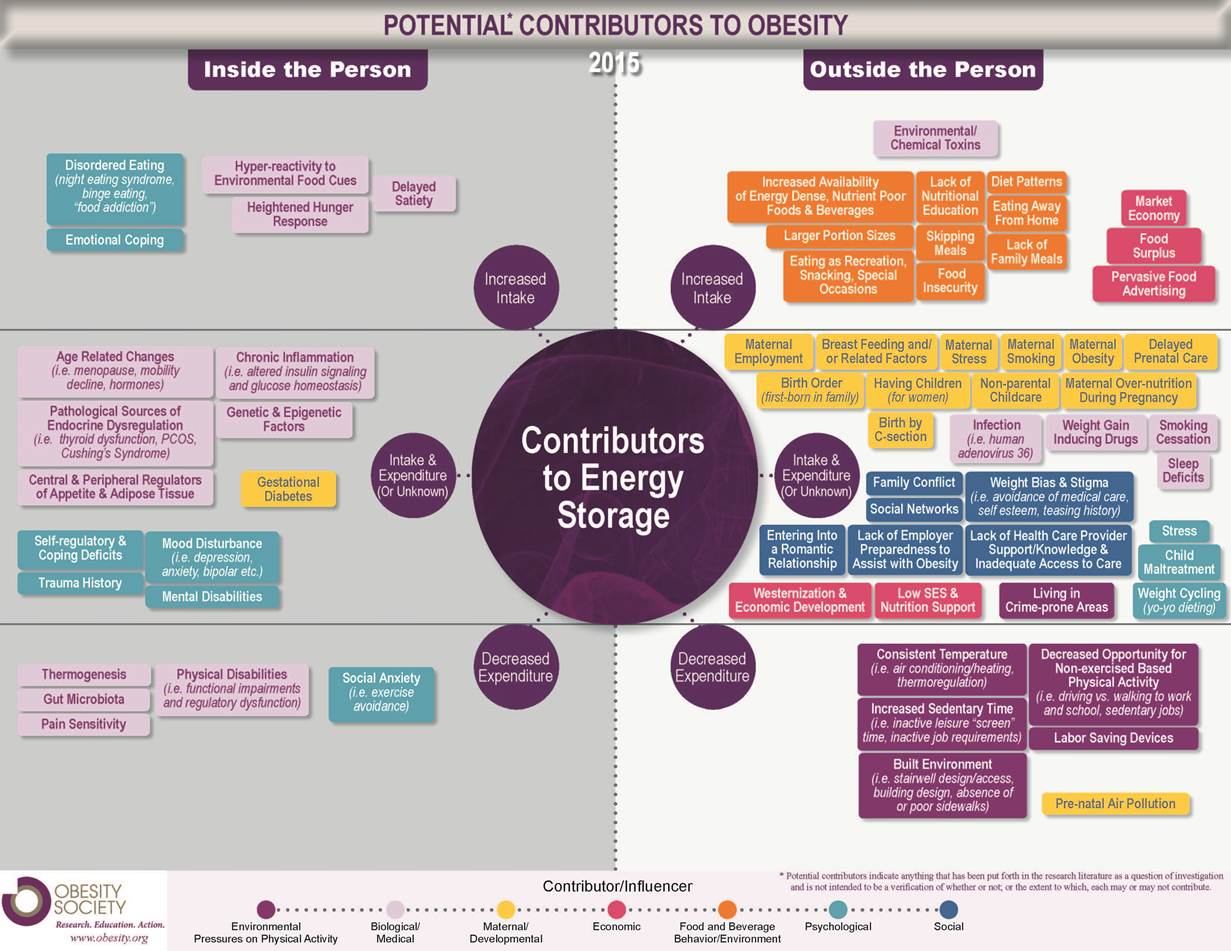
Rethinking Unsubstantiated Nonsense About Energy Balance
 For decades, the common dogma of energy balance stated that weight gain or loss is a simple matter of “calories in and calories out.” On the second day of YWM2016, Steve Blair called for a rethinking of “nonsense presented repeatedly without any data to back it up.”
For decades, the common dogma of energy balance stated that weight gain or loss is a simple matter of “calories in and calories out.” On the second day of YWM2016, Steve Blair called for a rethinking of “nonsense presented repeatedly without any data to back it up.”
At the top of his list for such nonsense, he placed claims that “increased food intake alone explains the increase in body weight in the United States.” And then methodically refuted those claims.
Blair explained that daily energy expenditure has dropped substantially over the last 50 years. He relied largely on a study published in PLOS ONE by Tim Church and colleagues. “No compelling evidence shows people are eating more than they did forty years ago,” he said.
 Blair also made the case that energy balance is far more complex than simplistic food and exercise cartoons. For example, the Obesity Society recently detailed more than 60 factors that can affect energy balance and result in storing the excess as fat.
Blair also made the case that energy balance is far more complex than simplistic food and exercise cartoons. For example, the Obesity Society recently detailed more than 60 factors that can affect energy balance and result in storing the excess as fat.
Simplistic thinking about energy balance is simply wrong. Even now, our understanding of energy balance is incomplete. Only with a deeper understanding can we begin to develop, test, and implement more effective interventions.
Click here for Blair’s presentation.
Balance, photograph © Tracy Benjamin / flickr
Subscribe by email to follow the accumulating evidence and observations that shape our view of health, obesity, and policy.
August 28, 2016

August 30, 2016 at 12:55 pm, Karl J. Kaiyala, Ph.D said:
Given his reliance on truly awful NHANEs-based estimates of caloric intake, Dr. Blair’s conclusion that “no compelling evidence shows people are eating more than they did forty years ago” may not be entirely unreasonable in a lawyerly sort of way. However, his analysis ignores the manifold changes in food availability, food variety, food formulation and food-related promotional practices that have transpired over recent decades. We are awash in highly processed and palatable food products and are encouraged by environmental cues and relentless promotional campaigns to consume that stuff in abundance. Perhaps despite all of this, people don’t eat more than they did forty years ago, but that proposition is really hard to swallow.
August 30, 2016 at 4:21 pm, Ted said:
Thanks for sharing your thoughts, Karl!
See this for perspective from Kevin Hall, who has thought carefully about this question: https://twitter.com/KevinH_PhD/status/769921555409301504
Based on everything I’ve read, I suspect that food consumption is up, food waste is up, and routine physical activity is down. Thus, the claim that “increased food intake alone explains the increase in body weight in the United States” is probably incorrect. And that is what Steve Blair was disputing in a rather colorful way.
August 30, 2016 at 3:48 pm, Allen Browne said:
Sorry I missed this presentation.
September 02, 2016 at 11:40 am, Stephan Guyenet said:
Three independent sources of data suggest that food intake increased in the US along with the obesity epidemic: NHANES surveys, USDA food disappearance data, and Kevin Hall’s modeling data. Although to be fair, Hall’s model uses the assumption that physical activity hasn’t changed over the period in question, so it may not be informative here. I review these data in my upcoming book, The Hungry Brain.
Energy expenditure probably hasn’t declined over the course of the obesity epidemic, for the simple reason that energy expenditure increases with body weight. Eric Ravussin and others have shown using calorimetry that a person with overweight expends ~10% more total kcals than a lean person (all else being equal, e.g. gender and activity level), and a person with obesity, ~20% more.
I think it’s hard to escape the fact that increasing energy intake was a central factor in the US obesity epidemic (at least, since 1978– physical activity could have been dominant before that– we were getting fatter before 1978 at a slower rate). It’s possible that decreasing physical activity could have played a role, but not by decreasing total energy expenditure. Either way, increased energy intake has to play a key role.